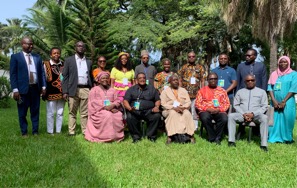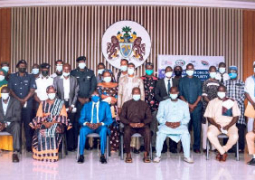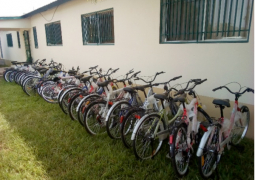
The training, held on theme -"From Environmental Conservation to Climate Action: Empowering Civil Society Organizations in Africa for Sustainable Development and Human Rights Advancement," started on August 28th, 2024 to end 30th August at METZY Residence Hotel in Bijilo
The event brought together experts, practitioners, and CSO representatives to explore the role of civil society in promoting democracy, environmental justice, and sustainable development, so as to enhance participants' knowledge and promote innovative solutions, thus contributing to a more sustainable and resilient future for Africa.
At the event, Hannah Forster, Executive Director of the African Centre for Democracy and Human Rights Studies, revealed that the training targeted west African countries, with representatives from 11 nations in attendance.
She outlined the threat posed by climate change in the region, noting that it is seriously impacting Africa.
Madam Forster reaffirmed that climate change does not only affect the continent’s resources, but also directly influences the lives and livelihoods of many Africans.
Dr. Nana K.A. Busia, an Assistant Professor and Research Fellow at the University of London, acknowledged that he was initially skeptical about climate change, believing that the focus should be on building roads and cutting down trees.
However, he later realised that the destruction of trees and the environment has a massive impact, resulting in significant environmental damage without any real development.
Dr. Busia thus advised participants to consider the limitations of government and understand how to strategically engage non-state actors, who are sometimes more powerful than the state, to effectively address climate change.
Edmund Foley, Executive Director of the Legal Aid Commission, maintained that it is important for the center to consider the future, saying by 2050, ‘one out of every child born in the world will be in Africa.’
The forum, he added, is not only addressing the current challenges of climate change, but also looking ahead to the future.
Foley urged the participants to help amplify these challenges and ensure that the discussions extend beyond the present to prepare for what lies ahead.
Mbassa Fall, an Executive Committee Member of the ACHRDS Governing Council, stated that the theme of the program represents a significant innovation in addressing climate change issues.
He described the event as timely, as the world is currently experienced the devastating effects of climate change, which, he warned, could lead to catastrophe.
Fall emphasised that climate change is a global issue requiring unified global action and a strong stance.




